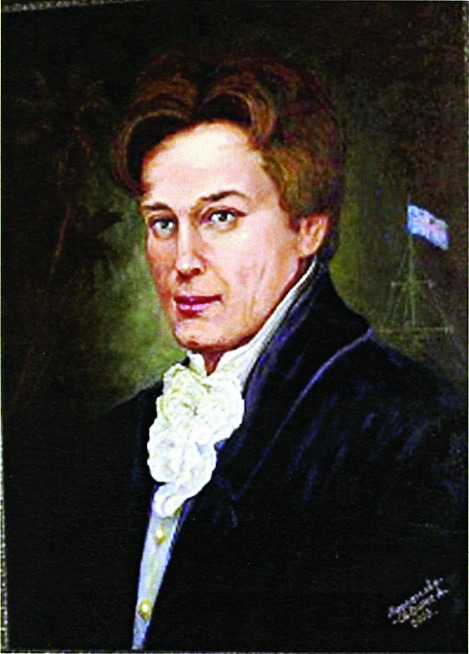
A memorial plaque dedicated to Gerasim Stepanovich Lebedev, the founder of Bengali theatre, is at the centre of a diplomatic imbroglio. The plaque, installed on Ezra Street in 2009, stands amid such desecrated surroundings that the Russian consulate has taken the matter to the ministry of external affairs and now to the mayor of Calcutta.
Last Friday, a meeting took place between Russian consul-general Irina Bashkirova and mayor Sovan Chatterjee. It triggered a joint inspection of the spot on Monday morning by civic officials and representatives of the consulate. There was talk of rebuilding the plaque and installing it a few metres away on the same pavement as well as erecting a second plaque on India Exchange Place, the road from which the alley starts.
The civic officials promised to ready both plaques before the Pujas.
Lebedev, after whom the road in front of Rabindra Sadan has been named, was a Russian linguist, musician and Indologist who made several notable contributions to Bengali culture in his decade-long stay in Calcutta till 1797.

He learnt Bengali and his translation of an English comedy called The Disguise by Richard Jodrell into Chhadmabes led to the birth of Bengali theatre. This is the play with which he opened his New Theatre on Doomtullah Street — the address is now 37 Ezra Street — with “Performers of both Sexes” on November 27, 1795. In a city that had so far witnessed only English plays performed for English audiences by English actors, this was a ground-breaking move and proved so popular that the British are said to have conspired to burn the theatre down soon after.
In its place, now stands a building called Baijnath Choubey & Co., chock-a-block with vendors. Gautam Ghosh, an official of Gorky Sadan, took the initiative to bring the spot to the notice of the consulate authorities and in 2009, during the time of the then consul-general Vladimir Lazarev, the plaque was installed as a joint initiative of the CMC and the cultural department of the consulate.
An electric transformer caused the pavement to be dug up and the plaque removed. “Its stone podium was destroyed. The plaque lay amid garbage and heaps of earth,” recalls deputy consul-general Mikhail Gusev of his January visit.
A complaint was lodged with the city office of the external affairs ministry, which called a meeting between the CMC and the consulate in March. “They promised to do something after the elections,” Gusev adds. Meanwhile, some stone pieces were added on the sides but that did little to restore its look. When Metro visited the spot in end-July, a water tap had been installed adjacent to the plaque leading to utensils being washed right at its foot from the adjacent pice hotels.
Consul-general Bashkirova had told Metro that she was “extremely upset that the plaque to a man who made a huge contribution was left amid heaps of rubbish in the cultural capital of the country.”
The lack of action post-election caused the second prod in the form of Friday’s meeting. The civic officials on Monday promised to ready both plaques before the Pujas.










